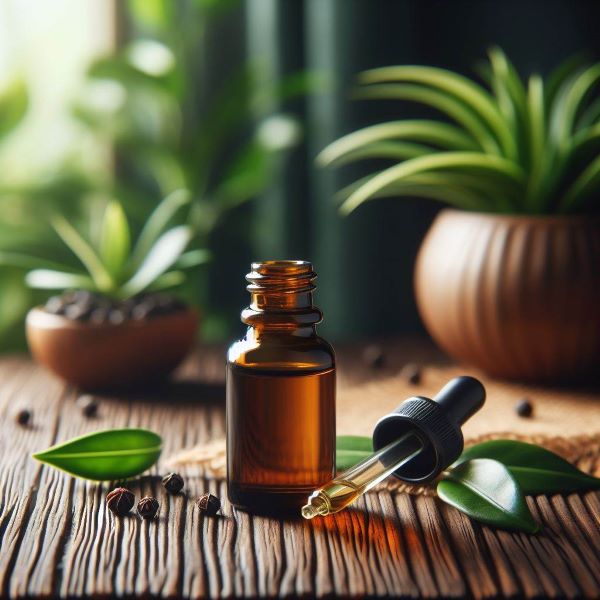Kalonji oil, also known as black seed oil, is derived from the seeds of Nigella sativa, a flowering plant native to South Asia. Known for its potent medicinal properties, kalonji oil has been used for centuries in traditional medicine systems such as Ayurveda and Unani. It is often referred to as the “miracle oil” due to its wide range of health benefits. This article provides a comprehensive overview of kalonji oil, including its nutritional profile, benefits, uses, therapeutic advantages, properties, side effects, and interesting facts, supported by scientific evidence.
Nutritional Profile of Kalonji Oil
It is rich in various nutrients and bioactive compounds that contribute to its health benefits:
- Thymoquinone: A powerful antioxidant and anti-inflammatory compound.
- Fatty Acids:
- Linoleic Acid (Omega-6): Supports skin health and cell function.
- Oleic Acid (Omega-9): Beneficial for heart health.
- Palmitic Acid: Provides moisturizing properties.
- Vitamins:
- Vitamin E: An antioxidant that protects cells from damage.
- Vitamin B Complex: Essential for energy metabolism and overall health.
- Minerals:
- Iron, Zinc, Calcium, Magnesium: Important for various bodily functions.
- Amino Acids: Building blocks of proteins, essential for tissue repair and growth.
Benefits of Kalonji Oil
1. Anti-Inflammatory and Antioxidant Properties
It is renowned for its anti-inflammatory and antioxidant effects:
- Reduces Inflammation: Thymoquinone in kalonji oil helps reduce inflammation, beneficial for conditions like arthritis and asthma.
- Fights Oxidative Stress: Antioxidants protect the body from free radical damage, reducing the risk of chronic diseases.
2. Immune System Support
It can boost immune function:
- Enhances Immunity: Rich in antioxidants and essential nutrients that support immune health.
3. Skin Health
It provides several benefits for the skin:
- Treats Acne: Antimicrobial properties help reduce acne-causing bacteria.
- Moisturizes Skin: Provides deep hydration, keeping the skin soft and supple.
- Reduces Scars: Promotes wound healing and reduces the appearance of scars.
4. Hair Health
Kalonji oil is beneficial for hair care:
- Promotes Hair Growth: Nourishes the scalp and stimulates hair follicles.
- Reduces Hair Loss: Strengthens hair, reducing breakage and thinning.
- Prevents Dandruff: Antifungal properties help prevent dandruff.
5. Digestive Health
It can aid in digestive health:
- Relieves Indigestion: Helps with digestion and reduces symptoms of bloating and gas.
- Treats Constipation: Acts as a mild laxative, promoting regular bowel movements.
6. Respiratory Health
It supports respiratory health:
- Treats Respiratory Conditions: Beneficial for asthma, bronchitis, and other respiratory issues due to its anti-inflammatory properties.
Uses of Kalonji Oil
Culinary Uses
- Cooking Oil: Used in small quantities to add flavor to dishes.
- Salad Dressings: Adds a unique taste and nutritional benefits to salads.
Cosmetic Uses
- Skin Care Products: Used in lotions, creams, and serums for its moisturizing and anti-inflammatory properties.
- Hair Care Products: Included in shampoos and conditioners to promote hair health.
Therapeutic Uses
- Dietary Supplements: Available in capsule form for convenient supplementation.
- Topical Applications: Used directly on the skin or hair for targeted benefits.
Therapeutic Advantages
It offers numerous therapeutic benefits due to its rich composition:
- Anti-inflammatory: Reduces inflammation, beneficial for treating various inflammatory conditions.
- Antimicrobial: Helps in fighting bacterial, viral, and fungal infections, promoting overall health.
- Antioxidant: Protects cells from oxidative stress, supporting overall health and wellness.
Properties of Kalonji Oil
- Antioxidant: Protects against free radical damage.
- Anti-inflammatory: Reduces inflammation in the body.
- Antimicrobial: Effective against various pathogens.
- Emollient: Moisturizes and softens the skin and hair.
Side Effects
While it is generally safe, some individuals may experience:
- Allergic Reactions: Can cause allergic reactions in some individuals, including itching, redness, and swelling.
- Gastrointestinal Issues: In large amounts, may cause stomach upset or nausea.
- Interaction with Medications: May interact with certain medications, so it’s important to consult with a healthcare provider before use.
Interesting Facts
- Historical Use: Kalonji seeds and oil have been used for over 2,000 years in traditional medicine.
- Cultural Significance: Often mentioned in ancient texts, including the Bible and the Quran, highlighting its historical importance.
- Versatility: Beyond its medicinal uses, kalonji oil is also used in culinary applications and cosmetics.
Scientific Evidence
Numerous studies support the health benefits of kalonji oil:
- A study published in the Journal of Ethnopharmacology found that thymoquinone, the active compound in kalonji oil, has potent anti-inflammatory and antioxidant effects. (Source)
- Research in the Phytotherapy Research journal showed that kalonji oil has significant antimicrobial properties, making it effective against various bacterial and fungal infections. (Source)
- Another study in the Journal of Dermatology & Dermatologic Surgery demonstrated the effectiveness of kalonji oil in promoting hair growth and reducing hair loss in patients with androgenetic alopecia. (Source)
Also, read: All You Need to Know about Amla Oil Now
Conclusion
Kalonji oil is a versatile and beneficial oil, rich in vitamins, minerals, and bioactive compounds that promote skin health, hair health, immune support, and overall wellness. Its applications in culinary use, skin care, and treatments make it a valuable addition to any health and beauty regimen. While generally safe, it’s important to use kalonji oil in moderation and be aware of potential side effects. Incorporating kalonji oil into your daily routine can lead to improved health, beauty, and overall well-being.





